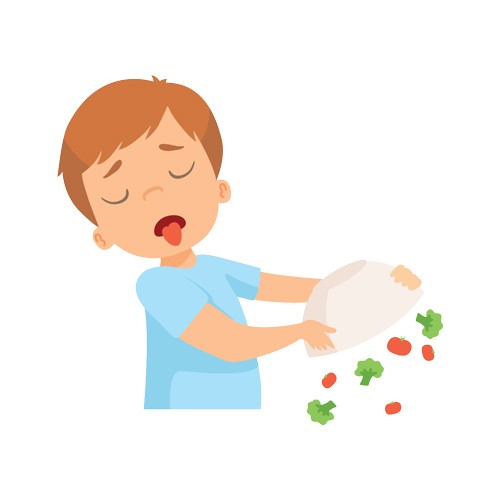Jul 01, 2020

We submitted five questions for her to answer for our Kern County readers.
Q. Families often struggle with young children's need for a diverse diet versus what they would prefer to eat. What is an ideal approach to this challenge?
A.
The word “struggle” is never something that we want to hear around feeding and mealtimes for our children. We want all feeding opportunities to be positive. At Montclair Speech Therapy, our approach is one that doesn’t place value on any type/group of foods, rather all food is food with different nutritional values.
We want children to come to the table with the ability to tolerate, interact, and eventually consume a variety of foods from different food groups, different consistencies, different flavors, different colors, and different sizes. We encourage our kiddos to be "little food scientists" so they can discover what makes food taste better, or not. We focus on modifying and giving them control while building their skills.
Ultimately, the focus at mealtimes should be the social aspects and the family time that occurs, not the food. If a child is in a heightened state of anxiety due to a variety of reasons, mealtimes are not perceived as positive and the battles will begin. Oftentimes, families come to us with a feeding methodology that just doesn't work for so many of the kids who we work with. We have to recognize the child's sensory system, motor abilities, previous feeding experiences, GI/medical system and all behaviors that they come to the table with.
Q. What feeding issue do you wish parents better understood? Can we dispel a common myth about kids and food?
A. A common myth that I see often in my practice is that kids should not play with their food. Children learn through play. We want our children to feel safe, have fun, and enjoy the process of meal preparation and feeding as much as possible. Kids learn about how foods will feel in their mouth by interacting with the foods at their fingertips, hands, arms, faces and how it smells so they can predict how it may taste and feel inside of their mouths.
Allowing and encouraging a child to play with food is such a valuable experience and one that I use in all of my sessions to help a child really get familiar with a food. The research shows that children will be much more likely to consume food that they have been exposed to through a variety of sources including books, song, faux foods, cooking, gardening, mealtimes and more. A successful feeding session is one in which a kid has made a mess, has food on their faces, extremities and most importantly, a smile on their faces.
Q. If you could share just one informational piece of advice with parents, what would that be?
A. Get your kids in the kitchen as much as possible and give them experiences that involve food. Allowing opportunities for meal preparation, baking, cooking, gardening, food shopping, listening to songs with foods, etc.
Q. Many children struggle with eating. At what point should parents be concerned enough to seek outside help with food issues?
A. I think parents should always trust their guts. If a parent senses that there is an issue, they should bring it to their pediatrician's attention. If a parent is experiencing mealtime stress, the child is as well.
At times, Pediatricians won’t recommend intervention because they see they are growing fine, but it's so much more than the numbers on the scale or the curve on their charts. If intervention happens only when a child drops weight, doesn't gain, etc., then we are waiting too long - as children by that time already have noticeable weight loss, and can be building up their negative associations with feeding and meals. This can take years to undo.
Feeding specialists, like myself, are available to help children and can support the child and family to get on the path to become more successful and competent feeders. It is our job to better educate our communities that we are available for these situations.
Q. What is the first step to getting that help? Does the conversation start with a pediatrician or should parents consult a different specialty?
A. The first step to getting help is talking to your Pediatrician about the issue as well as doing your own research. Feeding is a complex task and is developmental in nature.

Lori Caplan-Colon is a leading speech language pathologist specializing in pediatric feeding disorder and founder of Montclair Speech Therapy, a family friendly practice that provides services for infants, children, adults and seniors.








